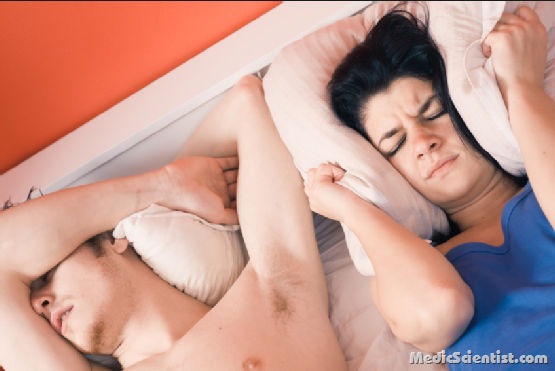Article Contents ::
How to Diagnose Different Types of Sleep Disorders
sleep disorder: Any condition that interferes with sleep, excluding environmental factors such as noise, excess heat or cold, movement (as on a train, bus, or ship), travel through time zones, or change in altitude.
Classifies sleep disorders into eight major categories:
- Insomnia
- Sleep related breathing disorders
- Hypersomnias of central origin
- Circadian rhythm sleep disorders
- Parasomnias
- Sleep related movement disorders
- Isolated symptoms
- and normal variants Other sleep disorders

- Sleep is one of the most crucial aspects of our health; the qualities and conditions of which can affect our mood, weight, memory, and even blood pressure.
- And like other parts of the body, sleep is prone to different disorders and can have dire effects as a consequence. Here we’ll go through some ways in which you can diagnose different types of sleeping disorders and hopefully help you find your way to the sleep you need.
- As of 2005, there are over 80 different kinds of sleeping disorders as described by the International Classification of Sleep Disorders.
- Despite that number, sleep studies are still an emerging field, and many people don’t know about the variety of disorders out there and many live without knowing that they’re suffering from one.
- Most people are aware of the more well-known sleep disorders such as insomnia, narcolepsy and sleep apnea, but what about recurring hypersomnia, sleep bruxism or hypnotic-dependent sleep disorders? These disorders affect many, but unfortunately their unknown status often renders them untreated. Of course, you can’t identify a problem if you don’t know what to look for; understanding sleep disorders is peremptory to diagnosing them.
Sleep disorders break down into three categories:
- dyssomnias, parasomnias and tertiary insomnias.
- Dyssomnias are characterized by an excess of sleepiness or in difficulty falling and staying asleep; commonly known dyssomnias include sleep apnea, restless leg syndrome, narcolepsy and shift work sleep disorder.
- Additionally, these dyssomnias have their own triple sub-division:
- intrinsic sleep disorders (hypersomnias, ideopathic insomnias and narcolepsy), extrinsic sleep disorders (environmental sleep disorder, alcohol- or toxin-induced sleep disorder and hypnotic-dependent sleep disorder) and then, lastly, circadian rhythm sleep disorders (jet lag, and ship work sleep disorder and sleep-phase syndromes).
- Parasomnias are comprised of mostly unwanted or inappropriate physical behaviors that occur during sleep such as bed wetting, sleep walking and sleep terrors. Parasomnias, too, have their subcategories, of which more information can be found , The last category of sleep disorders, tertiary insomnias has to do with insomnias having to do with substance use (alcohol, cigarettes) or their comorbidity with mental conditions and disorders.
- With a knowledge of how sleep disorders break down, you can begin to start diagnosing.
- While there are some ways you can test for sleep disorders at home, you should, of course, always consult with a physician if you have concerns that you may be suffering from a sleep disorder.
- The doctor may be able to help make a determination or might recommend sleep studies at a clinic specializing in sleep. Taking a sleep test is a good way to find out if you might have a sleep disorder worthy of investigation.
- will tell you whether or not you might be suffering from a sleep disorder.
- It might be a good idea to take this test with your sleeping partner as you might not be aware you’re performing some of these symptoms, such as snoring or losing breath.
- Keeping a sleep diary is another good way to chart your sleep and make a determination of your sleep health; it’s also something you can share with your doctor to help illuminate any diagnoses.
- Sleep is an important part of our lives and sleep disorders can pose very serious problems, especially if they go untreated. Having awareness of the various kinds of sleep disorders can help you determine whether or not you might be suffering from a sleep disorder and from there to gain an expert’s opinion.
Author Bio:
Brandon Travis works in the health and wellness arena. He enjoys spending his downtime reading and helping his 2 boys with their schoolwork. When he's not tutoring he likes to review sites that have anti snore aids like .
